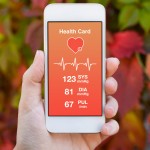 The last few years have seen a tremendous rise in the number of mobile health apps and wearable devices. Suffice to say, with such a burgeoning field, there is not an overwhelming amount of evidence towards its effectiveness.
The last few years have seen a tremendous rise in the number of mobile health apps and wearable devices. Suffice to say, with such a burgeoning field, there is not an overwhelming amount of evidence towards its effectiveness.
A recent paper in the journal Circulation suggests that the jury is still out on the value of the wave of mobile health innovations.
A jury still out
The study, conducted by the American Heart Association, saw evidence from mobile health technologies analyzed to see how big an impact it had on reducing the risk of heart disease.
“The review found that the research on mobile health technologies is still in the very early stages, and more research is needed to understand the role of mobile solutions for cardiovascular disease prevention,” the authors say.
The paper highlights how around 20 percent of American adults are using some form of health app, despite the apparent lack of conclusive evidence.
A mixed bag
Data from 29 studies published in the last decade was analyzed across six distinct health areas, all of which impact on the cardiovascular health of adults.
The analysis revealed that there were promising early results in areas such as weight loss and smoking cessation, but less evidence to suggest that wearable devices had a noticeable and long-term impact on physical activity levels.
There was also little real evidence to suggest that the devices were effective in controlling diabetes, blood pressure or cholesterol levels.
Of course, that isn’t to say that the devices aren’t effective, and the authors state that many of these conditions are underpinned by lifestyle habits that can be monitored and improved with such mobile technologies.
The devices can prove extremely effective both at monitoring what we do and for giving individual feedback on our activities and how they could be improved. That all of this is available in easy to use forms makes them more likely to be adopted.
“There’s no need to carry around a log to monitor or chart a health behavior, because many mobile apps are set up so there’s little data entry needed,” the authors say.
Making good health social
The authors are also positive about the social aspect of these apps, with most allowing the user to connect up with their peers, doctors and other healthcare professionals, all of whom can offer the kind of support that is hard to obtain through other means.
They believe however that more needs to be done to understand the true benefits of using them so that a degree of quality control can be exerted on the market.
It is a hugely popular area for research however, so they are confident that a greater understanding of the costs and benefits will quickly emerge. The question is, will it keep pace with the level of innovation happening in the sector?
My FitBit has been a godsend and really helped me to lose weight, so I'd say they're fantastic personally.
Great to hear Helen, thanks for sharing your experience.
Interesting read, thanks for sharing.
Our programme to understand and incentivise informal physical activity in parks, suggests that an app can encourage increased activity if paired with rewards. The link between even a moderate increase in activity and reduced risk for a range of health issues is well established. More research is to be done for sure but early feedback from our work is encouraging.
Apps can't fix poor health habits.
With our program that covers several aspects such as Care management, Remote monitoring, and social aspects (as described by the author), We strongly feel that signs are encouraging and also these platforms has potential to assist almost everybody with respect to their health. Also greater research is the need of the hour.
I think that the concept of a health app is great; as while it cannot force people to change their habits, it can give people the information they might need in order to start changing their lifestyle. No an app can't make you eat vegetables over fast food or go to the gym more, but it can let you know how sedentary you truly are, which could kick start a desire for a more active lifestyle. The same can be said for the food tracker apps, where you can plug in the dish you ate, and it breaks down the macros/nutritional value etc. The app itself cannot force you to eat healthy, but it breaks down what you are eating, and gives you the information you need in order to make healthy life choices. You might think that something you are eating is healthy, but the result could be quite the opposite; the same can go for food you think is unhealthy. At the end of the day, knowledge is power, and the more people know about their health, the more they are in control to make changes to their lifestyle.
Great post, thanks for sharing.